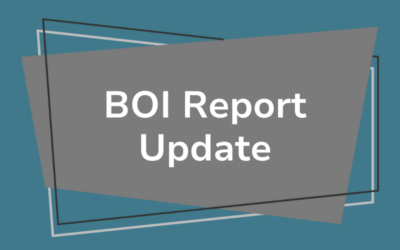Hiring the right people requires a sure-fire interviewing process. To effectively interview job candidates, you need more than a little dedicated time and a list of questions; you need an understanding of how you can draw out the information you need about an individual’s knowledge and capabilities. You also need to tune into character nuances that might indicate how well a candidate will work with your team. And, of course, you need to do all of that without breaking any anti-discrimination laws.
Interviewing can be intimidating, for not only prospective employees, but also for employers! By following some best practices for interviewing applicants, you can better ensure your interview process does the job well, allowing you to home in on that one individual who will be an exceptional fit for the position.
Get The Job Done Right: 6 Best Practices For Interviewing Job Candidates
Prepare
Whether you alone will interview the job candidate or you decide to have multiple interviewers, everyone involved should prepare in advance.
Interviewers should know what experience, capabilities, and professional characteristics are critical to the job (it helps to rank them in order of most important to least important), so everyone is on the same page when assessing job candidates. Also, each interviewer needs to understand her role in the interview and have questions prepared that will draw out relevant information about the job candidate’s knowledge, skills, and experience. To do this, you all need to be intimately familiar with the job position’s requirements and the information a job candidate provided thus far (job application, resume, phone interview, etc.) that has awarded her an in-person interview.
Make It As Less Stressful As Possible
To get things off to the best start, be on time. Making an on-time candidate wait around for you and other interviewers to finish up phone calls or run for coffee at the last minute will send the wrong impression and add to any nervousness she’s already feeling. Begin the interview on a friendly note with some casual small talk to make the job candidate feel comfortable and at ease. When excessively nervous, even an individual who is fully capable and competent will lose the ability to put her best foot forward in an interview. I would never want to count anyone out simply because of interview jitters. I’ve always found that breaking the ice with some light-hearted, easy-going conversation helps everyone relax and sets the stage for a productive exchange of information.
Also, set aside enough time for the interview so you aren’t rushing through it. If you’re constantly checking the clock, you won’t be concentrating as fully as you should be on the interview. Your applicant will sense that and may not answer questions in adequate detail because she doesn’t want to impose on your time.
Comply With The Law
Federal and state anti-discrimination laws exist to protect applicants from biases of age, sex, race, color, national origin, religion, genetics, or disabilities. Everyone involved in the interviewing and hiring process should understand which job interview questions are acceptable to ask and the job interview questions that are illegal. Use questions that are focused on drawing out information about your interviewee’s skills, knowledge, and experience relevant to the job. That will help you avoid inquiring about personal situations and lifestyle preferences, which could raise suspicions of discrimination if a candidate isn’t hired.
Ask Questions That Allow The Job Candidate To Do The Talking
The best way to learn more about a prospective employee’s capabilities, attitude, and professional style is to let her have the floor. Consider asking open-ended questions that solicit a more detailed answer than just “yes” or “no.” Also, consider including questions that ask applicants to share about some past on-the-job experiences and hypothetical situations. These can help shed light on how well a candidate might deal with certain circumstances and challenges on the job.
Some examples of questions that might draw out meaningful responses include:
- What interests you most about working for our company?
- What did you like most about your most recent position with your former employer?
- Describe a time when you had to share unwelcome but necessary news with a customer.
- Tell us about when your presentation skills helped change someone’s preconceived ideas about something. How did you prepare for the challenge?
- Suppose you were recently hired as a manager at a local restaurant. Every week, a certain customer comes in for lunch. And every week, that customer asks to talk to you to complain about the wait time, the server, or the food. How would you deal with this customer?
These types of open questions can help you gauge a job candidate’s communication abilities, problem-solving skills, and professionalism. They will also help you get a sense for how an applicant may react under certain circumstances and how well she might adapt to your company’s culture.
Listen Well And Take Good Notes
Minimize distractions so your attention doesn’t wander to other things while you’re conducting an interview. As your job applicant is answering your questions, be fully present mentally when listening. And take notes. You may think your memory is good, but it’s probably not going to live up to your expectations! You’ll want to capture what you liked and didn’t like about how the job candidate responded to you. After interviewing multiple candidates, you’ll have your notes to refer back to as you assess each individual and decide whom you want to ask back to attend subsequent interviews.
Give The Job Candidate An Opportunity To Ask Questions
Remember, the interview process is also to help qualified candidates learn whether a position might be right for them. Be sure to provide ample opportunity for them to ask questions about the job responsibilities, your company’s policies, and the working environment at your company.
Correctly interviewing job candidates will reveal a lot about an applicant’s skills, experience, knowledge, and interpersonal skills. With proper planning and attention to the best practices I’ve shared here, your interviews can help ensure you hire the most suitable person for the job. For further guidance and to make sure you comply with all the legal requirements (thus avoiding a job discrimination lawsuit), consider enlisting the help of a human resources expert and/or attorney. Doing it right from the start can save you time, headaches, and employee turnover and training costs.





